CCCEU, EUCCC jointly host 2nd "EU-China Business Leaders Roundtable Dialogue" Ambassador FU Cong delivers keynote speech
On October 26, 2023, China Chamber of Commerce to the EU (CCCEU) and the European Union Chamber of Commerce in China (EUCCC) jointly organized the second "EU-China Business Leaders Roundtable Dialogue" in Brussels. The meeting focused on unlocking the cooperation potential between the Chinese and European markets and engaged in in-depth discussions to promote a mutually beneficial and win-win economic and trade relationship between China and the EU.
Ambassador Fu Cong, Head of the Chinese Mission to the European Union, made his mark at the meeting with a keynote speech, while Minister PENG Gang was in attendance. European Commission senior officials also took the floor to deliver their addresses.
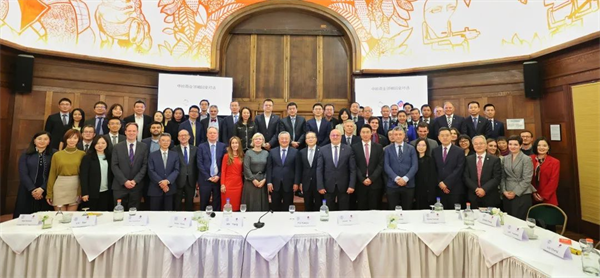
Following the successful inaugural dialogue held by both chambers in January of 2023, this event represented a renewed collaboration between the two chambers. It also served as a significant high-level dialogue between the Chinese and European business communities, taking place in the aftermath of the China-EU Strategic Dialogue and High-Level Economic and Trade Dialogue. It signifies that the Chinese and European business sectors are increasing their interactions and dialogue after the full resumption of interactions at all levels, with the aim of enhancing understanding and exploring opportunities for cooperation, thereby jointly supporting the stable development of China-EU economic and trade relations.
Keynote Speeches
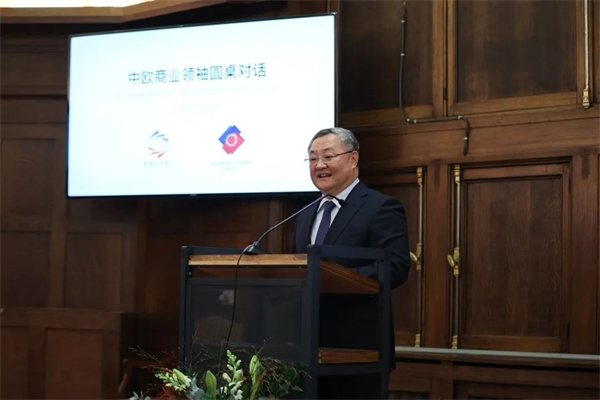
Ambassador Fu Cong congratulated the convening of the dialogue. In his keynote speech, he pointed out that China and the EU were two major powers, markets, and civilizations. As the international landscape had become more turbulent and global challenges had increased, the importance and indispensability of cooperation between China and the EU had also grown. China and the EU had been each other's second-largest trading partners, with an average daily trade volume exceeding 2 billion euros. Businesses from both sides had played a significant role in driving this development. Chinese companies had deeply penetrated the EU market, contributing to EU taxation, employment, and innovation.
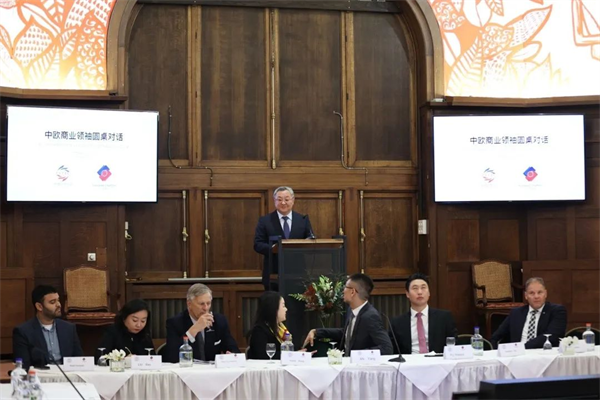
Ambassador FU Cong emphasized that after decades of close cooperation, the China-EU economic relationship had formed a symbiotic bond. This had been a natural result of market economies and globalization, contributing to increased productivity and economic benefits for both parties. China and the EU had been partners, not adversaries, and cooperation had not entailed risks. Interdependence had not equated to insecurity. The biggest risk had been not to cooperate, and the biggest insecurity had been not to advocate development. Both China and the EU had advocated for multipolarity and multilateralism, and with a solid foundation for cooperation, their collaboration had been characterized by mutual complementarity and mutual benefit. They should have jointly promoted economic globalization and trade liberalization, opened their doors to each other, expanded trade and two-way investments, and prioritized and encouraged deeper cooperation between the business communities of both sides to create a favorable environment for economic and trade exchanges.
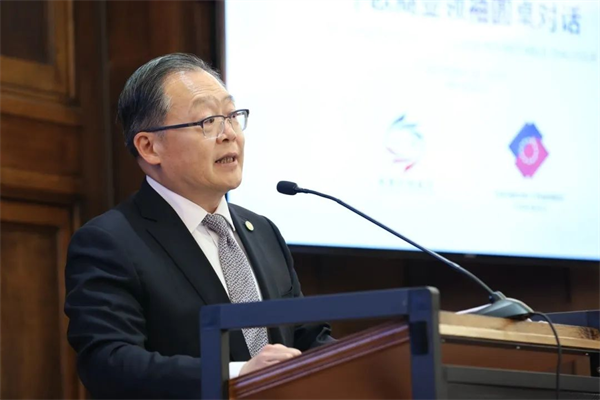
CCCEU Chairman Mr. XU Chen and EUCCC President Mr. Jens Eskelund delivered welcoming speeches. Chairman XU Chen welcomed Ambassador FU and representatives from China and the EU, stating that this year marked a new chapter in China-EU interactions. Following European Commission President Ursula von der Leyen's visit to China, high-level exchanges between China and the EU have continued. In the third quarter of this year, China's imports from the EU continued to grow, contributing to the development of mutually beneficial economic and trade relations between China and the EU. However, Chinese and European enterprises are concerned about recent trends, such as increasing market access barriers and the politicization of economic and trade issues within the EU. They hope that the EU will provide a fair and non-discriminatory business environment for Chinese companies. Chinese companies view Europe as an important destination for overseas expansion and have established research and development centers, data centers, and investments in new energy and infrastructure, including battery manufacturing plants, contributing to EU economic growth, innovation, and job market development. There is still significant room for growth in bilateral investments between China and the EU, and it is expected that various parties will actively promote the signing and implementation of the China-EU investment agreement to foster growth in China-EU investment and business relations.
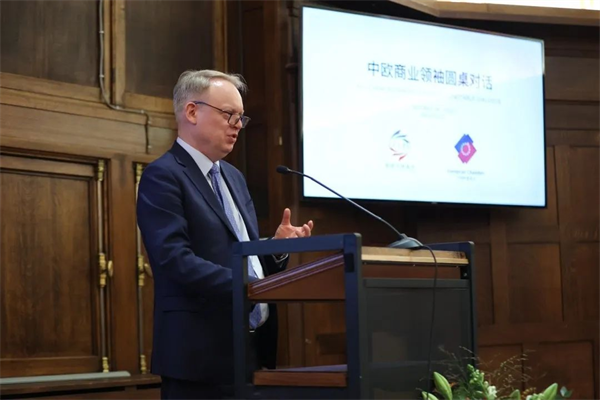
EUCCC President Jens Eskelund mentioned that Europe and China have a long history of effective cooperation. The development of China-EU relations has created opportunities for hundreds of millions of people, and both sides need to work together to ensure a better future. The potential for business development between China and the EU still exists and is a symbiotic relationship with important mutual interdependence. In August of 2023, the Chinese State Council issued 24-Point Strategy aimed at attracting foreign investment, which were very encouraging. These strategies included many aspects that European companies had advocated for over the years. He emphasized the importance of dialogue and expressing concerns, stating that this dialogue is an important platform for exchanging views and finding solutions, and he looks forward to fruitful outcomes for the future of China-EU trade relations.
The Executive Vice President of the European Commission and Trade Commissioner, Mr. Dombrovskis, delegated his Deputy Head of Staff, Ms. Zaneta Vegnere, to attend the meeting. At the same time, Ms. Eva Valle Lagares, Head of Unit for Far East affairs at the Directorate-General for Trade of the European Commission, delivered a speech as a special guest.
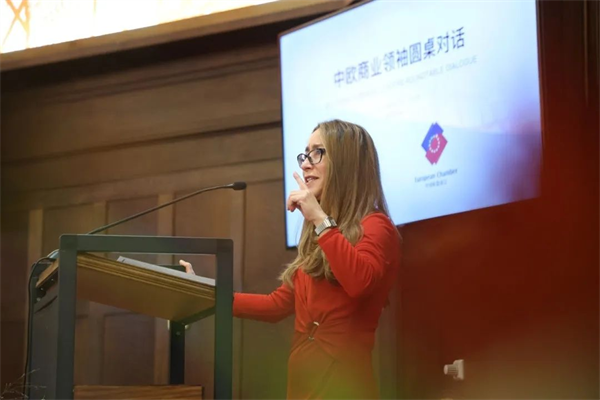
Eva Valle Lagares stated that the European side is concerned about market imbalances and inequalities and has taken various measures to rebalance trade and foster mutually beneficial relationships. The European Union possesses a mature, prosperous, and powerful consumer market with strong purchasing power, and it is considered "fair" in terms of competition. The EU's "risk mitigation" strategy is aimed at safeguarding security and enhancing resilience. Both China and the EU can work towards establishing a more balanced and mutually beneficial relationship.
During the remarks session by representatives from two chambers, several distinguished speakers addressed the audience. These included:
-FU Xiangyang, Vice Chairman of CCCEU and Chairman of COSCO SHIPPING (Europe).
-Gianni Di Giovanni, State Representative Vice-President of Fincantieri Group and Chairman of Fincantieri China, as the National Representative of EUCCC.
-WEN Han, Chief Representative to the EU Institutions and Vice President of Public Affairs for Europe at Huawei.
-ZHANG Danyang (Michelle), Chair of the Rail Working Group at the EUCCC, and Government Affairs & Marketing Director of Knorr-Bremse.
-CHEN Fei, Executive Vice Chairman and CEO of SINO_CEEF Capital (SINO_CEE Fund).
-ZHANG Jie (Jacky), Chair of the Cosmetics Working Group at EUCCC and Asia Regulatory Director of L'Oréal.
-David Baumgart, GR Affairs Director at Xiaomi EU.
-LIU Ran, Vice Chair of the Banking & Securities Working Group at the EUCCC, and Head of Public Affairs at Société Générale China.
Following these speeches, Chairman Xu Chen and President Jens Eskelund then moderated a roundtable discussion where guests exchanged ideas and engaged in in-depth discussions about opportunities and challenges in the China-EU market and business environment, particularly in areas such as energy, green finance, and cybersecurity.
Closing Remarks
Minister PENG Gang provided feedback and remarks on the discussions. EUCCC Secretary General Mr. Adam Dunnett and CCCEU Secretary General Mr. FANG Dongkui delivered concluding statements.
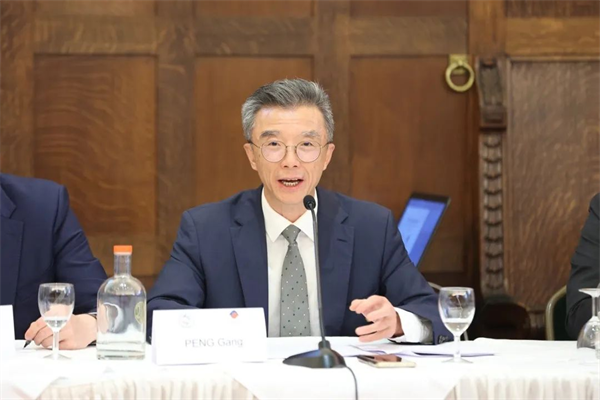
Minister PENG Gang stated that the Chinese government has always prioritized expanding market access and improving the business environment. At the recently concluded third "Belt and Road" forum, Chinese leaders announced the comprehensive removal of foreign investment access restrictions in the manufacturing sector. The Chinese government has revised the negative list for foreign investment access for five consecutive years, offering more opportunities to foreign investors. China will continue its efforts to expand market access and improve the business environment, aligning with a market-oriented, rules-based approach, to better serve European and other global businesses. The vast Chinese market will also provide enhanced opportunities for all parties involved.
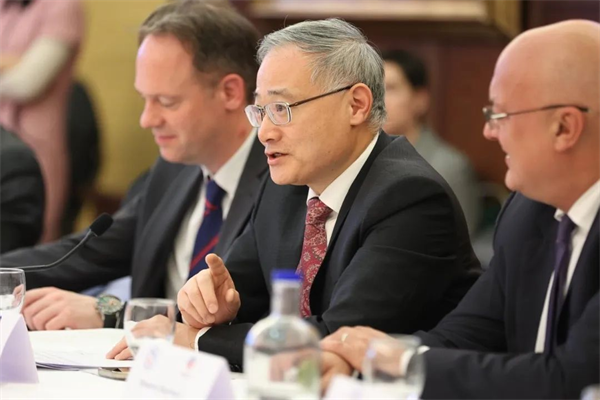
Mr. FANG Dongkui expressed that this dialogue delved into key issues such as China-EU trade relations and cooperation, contributing constructive suggestions to promote China-EU development. On the 14th of next month, the CCCEU will release its annual flagship report, focusing on topics such as Chinese companies' development in Europe, the assessment of the EU's business environment, and critical themes like green, digital, technology, and sustainability. The report will also discuss the impact of the EU's "de-risking" strategy. Chinese Enterprises hope that the European side objectively assesses trade deficits and China's supply chain advantages, particularly in areas like electric vehicles, while avoiding overgeneralizing security concepts and providing better conditions for China-EU business cooperation.
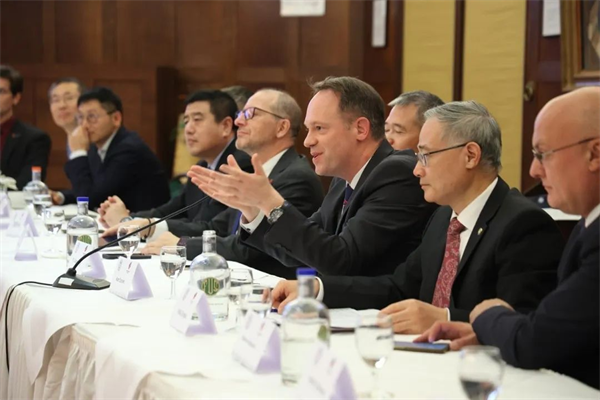
Mr. Adam Dunnett stated that this dialogue has yielded fruitful results, with the business community making more commitments towards green transformation and economic development, demonstrating their responsibility. The Chinese and European business sectors share many common interests in areas such as renewable energy, carbon neutrality, green finance, and standard setting, offering significant opportunities for collaboration. The discussion at this meeting identified numerous areas where both business communities can work together. To drive China-EU business relations towards mutual benefit and progress, efforts are needed to facilitate increased communication between governments and businesses.
This roundtable dialogue attracted nearly 80 participants, including representatives from Chinese and European governments and about 50 companies from various sectors such as finance, communication, logistics, solar energy, batteries, legal, taxation, funds, and consumer goods.
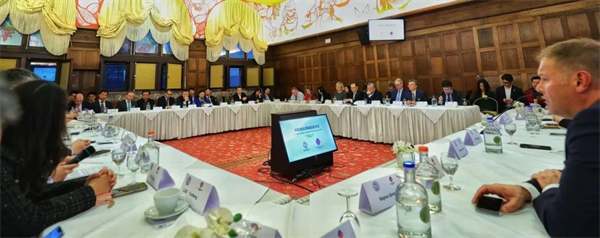
Photographs from the Dialogue
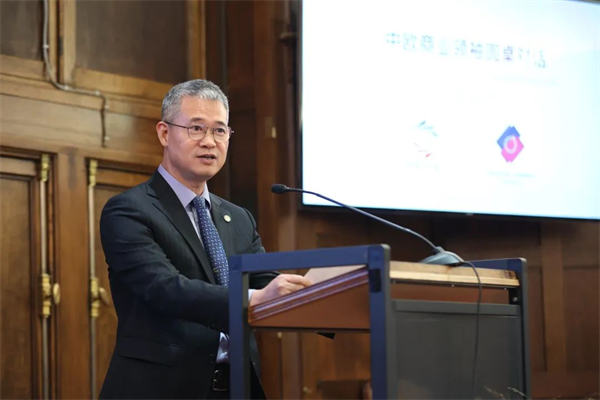
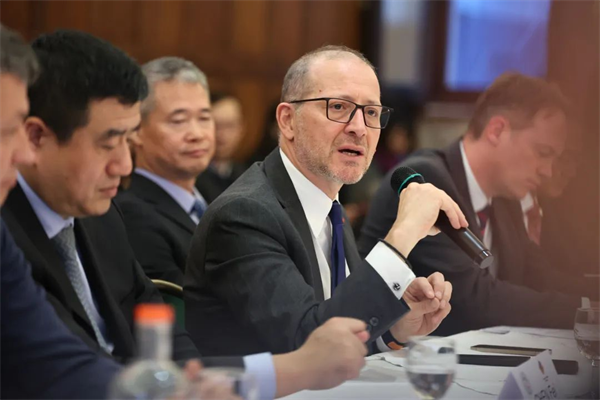
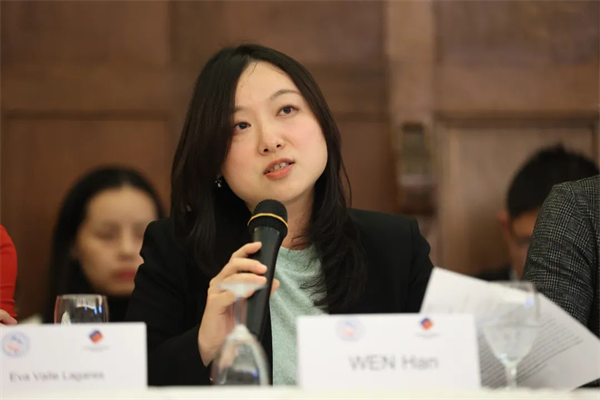
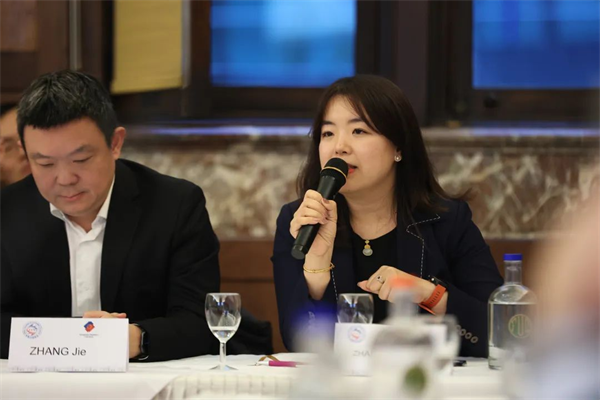
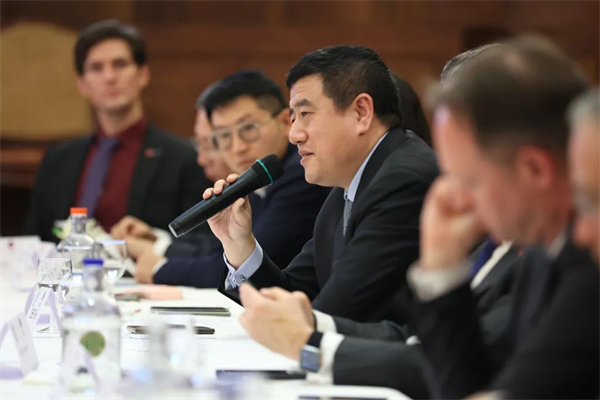
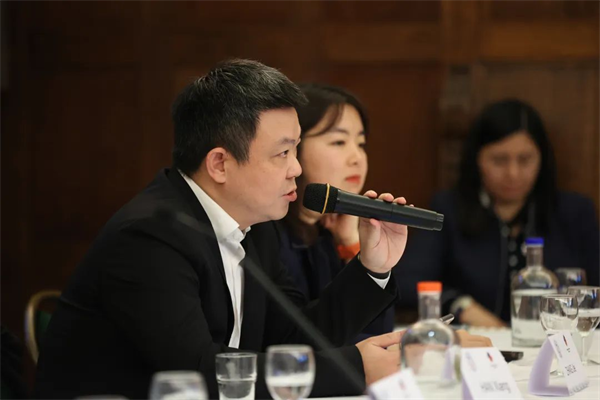
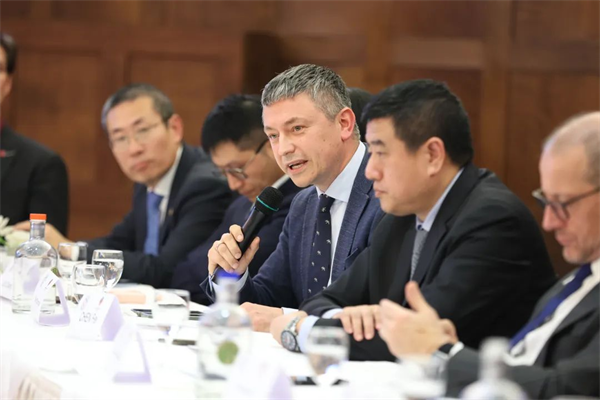
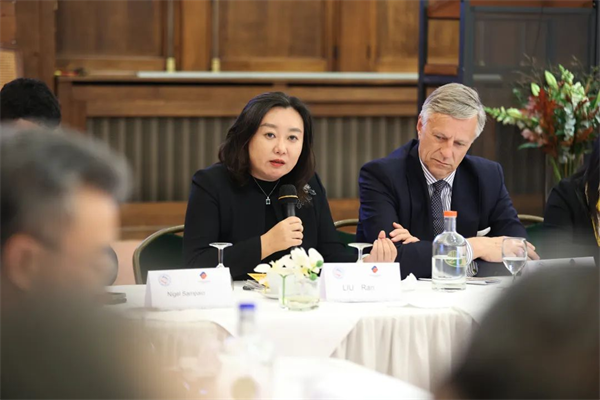
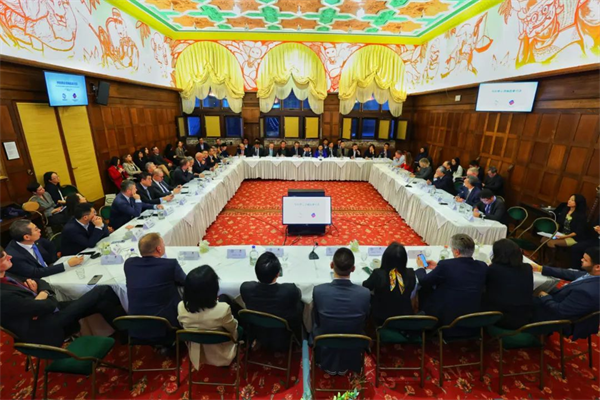
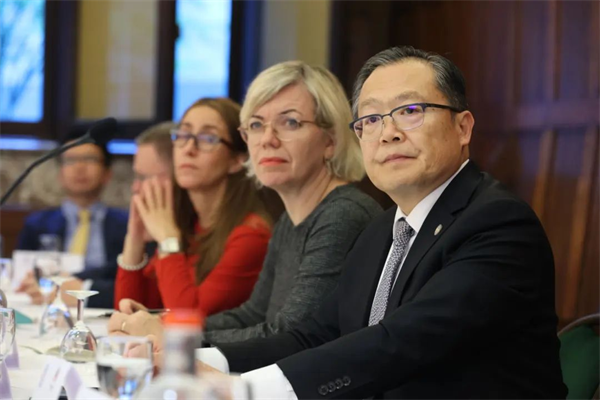
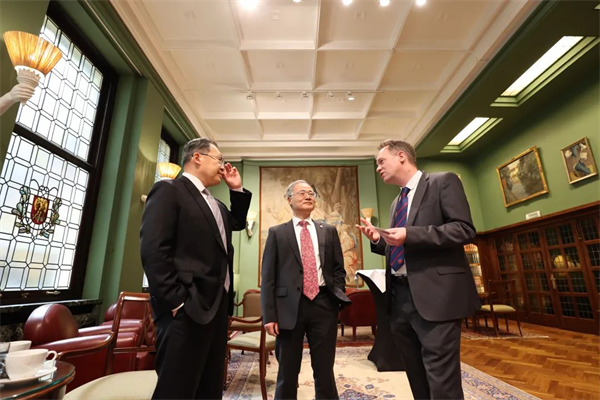
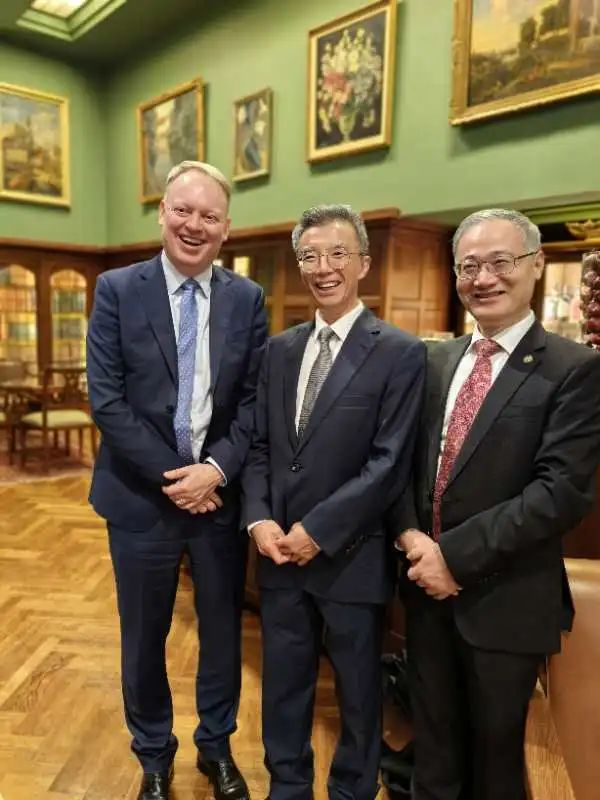

 Login
Login Login
Login CCCEU and Gunnercooke Successfully Host Webinar on CSDDD and FLR Compliance to Guide Chinese Businesses
CCCEU and Gunnercooke Successfully Host Webinar on CSDDD and FLR Compliance to Guide Chinese Businesses Cultivating responsible China-EU business leaders essential to tackling global challenges
Cultivating responsible China-EU business leaders essential to tackling global challenges



